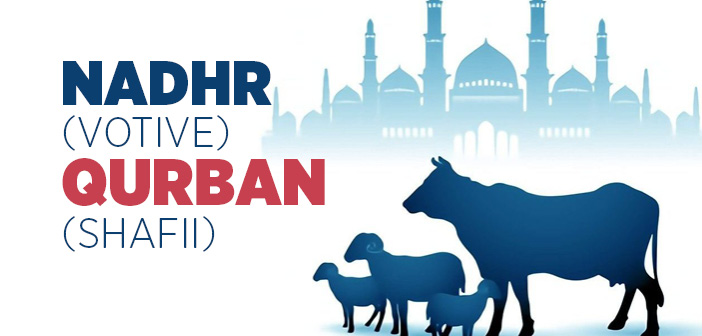What is the nadhr qurban in islam? What is the votive qurban in islam? What is the qurbani in islam?
Nadhr qurban means to vow or promise on the part of a person who is an adult and of sound mind (mukallaf), of obliging himself for the sake of Allah to slaughter an animal that is not obligatory. Vow might or might not be attached to a condition. For example, the case of a person who says, “If my son passes his exams with an A, I promise to offer a sheep as sacrifice” is an example of a conditional vow. The case of a person who unconditionally says, “I promise to sacrifice a ram for the sake of Allah” is an example for an unconditional vow.
It is obligatory to slaughter the animal that has been vowed to be slaughtered. The person who has vowed has made it obligatory upon himself to fulfill his vow. Allah Almighty says in the Qur’an, “… Then let them (believers) complete the rites prescribed for them, perform their vows…”[1]
The animal slaughtered because of a vow cannot be given to the rich. Nor can the family members (himself, his wife, his father, his mother, his grandfather, his children and his grandchildren) of the person who offer the nadhr qurban eat from it. If they eat from it, they have to give charity in the amount equal to the value of the part they ate.
If a person says for the animal with him “This is a qurban” or, “By Allah, I will sacrifice this as qurban”, that animal becomes a nadhr. After saying this, he cannot sell or change that animal with another animal to sacrifice. He has to sacrifice that specific animal. If that animal is lost or stolen before the festival day – if the owner has no negligence in this regard – he does not have to do anything. However, if he destroys it, he has to buy a similar animal and offer it as sacrifice.
The hide and the intestines of a nadhr (votive) qurban can be donated to the poor or charity organizations just like the regular qurban. Its skin or hide can also be utilized as a household item. However, in the latter case, a charity in the amount of its value should be given to the poor.
[1] Al-Hajj, 22: 29.
Source: Fiqh1 (According To The Shafi’i School Of Islamic Law), Erkam Publications





